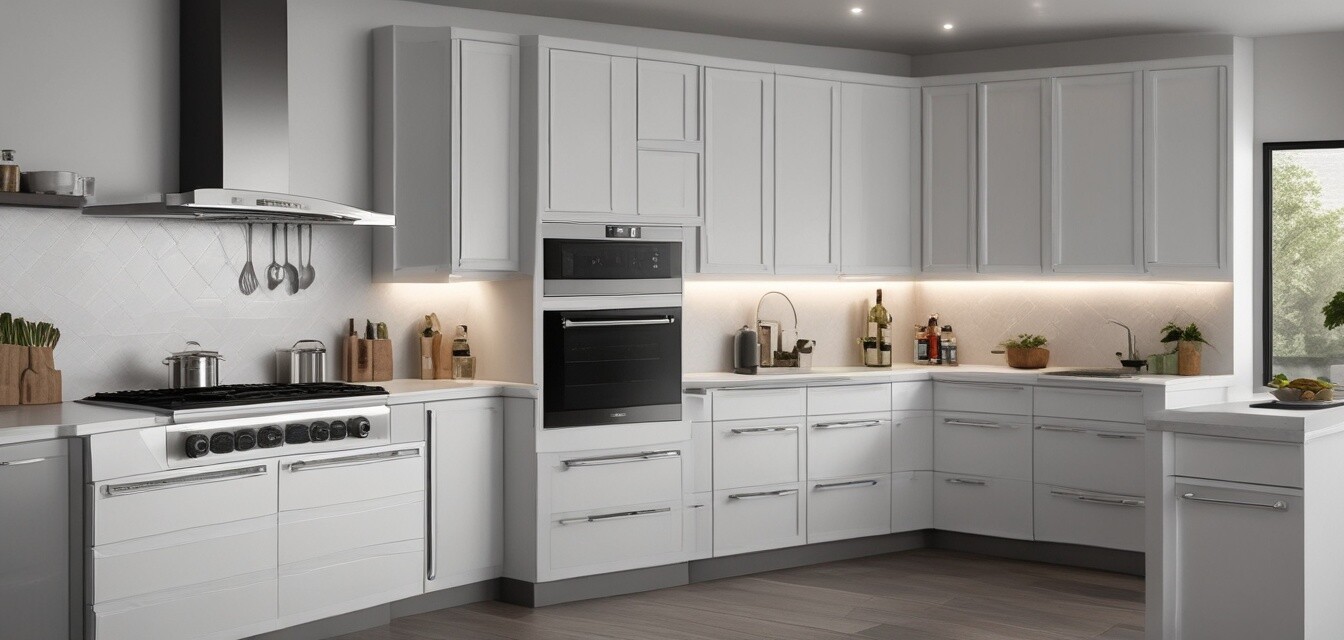
How Smart Home Automation is Expanding to Kitchens
Key Takeaways
- Home automation is increasingly integrating into kitchen spaces.
- Smart appliances enhance convenience and efficiency for everyday tasks.
- Technological advancements aim at energy-saving and improved user experience.
- Easy connectivity through Bluetooth and Wi-Fi is a trend among modern kitchen gadgets.
- Smart kitchens are reshaping how we cook, manage food, and utilize space.
In recent years, smart home automation has taken significant strides, not just in living rooms and bedrooms, but increasingly in kitchens. This trend is revolutionizing how we manage everyday tasks, providing us with tools that not only make cooking easier but also more efficient and enjoyable. In this article, we will explore how these technologies are entering the kitchen space and what that means for homeowners and cooking enthusiasts alike.
The rise of smart kitchen technology
The smart kitchen is no longer a concept of the future; it is a present reality. Home automation technology is evolving, and kitchens are becoming one of the central hubs where these innovations take place. Let’s explore some of the primary drivers behind this explosion in smart kitchen technology.
1. Convenience at your fingertips
Smart appliances bring an element of convenience that was previously unimaginable. With technologies like voice-activated assistance and smartphone connectivity, tasks that could take minutes can now be completed with just a few taps or spoken commands. Here are a few examples:
- Setting timers on your smart oven while chopping vegetables.
- Adjusting your smart refrigerator settings remotely.
- Sending cooking instructions directly from your smartphone.
2. Energy Efficiency
Modern appliances are not just about convenience; they are also designed with energy efficiency in mind. Smart technologies in kitchens often incorporate features that help reduce energy consumption.
| Appliance | Energy Efficiency Features |
|---|---|
| Smart Oven | Pre-heat function that schedules based on recipe timing |
| Intelligent Cooktop | Uses induction technology for faster cooking with less energy |
| Smart Refrigerator | Alerts you when the door is left open, saving energy |
3. Improved Food Management
With smart technologies, managing food inventory becomes easier. Smart refrigerators can track expiration dates and suggest meals based on available ingredients. Homeowners can find solutions to prevent food waste effectively, contributing to more sustainable living.
Pros
- Enhances cooking efficiency and reduces cooking time.
- Provides smart notifications for groceries and meal planning.
- Integrates with other smart home devices for seamless connectivity.
Cons
- Initial investment can be high for a fully equipped smart kitchen.
- Dependence on technology may lead to problems if devices fail or malfunction.
- Privacy concerns surrounding data collection from smart appliances.
Current trends in smart kitchens
The integration of smart technology into kitchens is thriving, and several trends are emerging. Here are some key trends currently shaping the future of smart kitchens:
1. Wireless Connectivity
With innovations in Bluetooth and Wi-Fi connectivity, appliances can communicate seamlessly. Systems like Amazon Alexa or Google Assistant can now control multiple devices, making it easier to manage your kitchen environment.
2. Voice Activated Technology
Voice control is becoming a standard feature in many smart appliances, allowing users to operate devices hands-free. This is particularly useful when handling other ingredients or cleaning up.
3. Automated Cooking Features
Some smart cooktops and ovens can automatically adjust temperature and cooking times depending on the recipe selected. This removes the guesswork and encourages precision in cooking.
Looking Ahead: The Future of Smart Kitchens
The future of kitchen technology is bright, with continual advancements expected. Homeowners can anticipate even more integration between their appliances, leading to sophisticated systems that support a less hectic cooking experience. Here are a few potential developments:
- Expanding ecosystem of devices that communicate and act autonomously.
- Greater focus on sustainability, with kitchens utilizing less water and energy.
- Improved user interfaces and user experiences across devices.
As kitchens continue to modernize, new products are frequently entering the market. For great information on the latest in kitchen technology and product recommendations, be sure to explore our Kitchen Technology News section.
Conclusion
Smart home automation is undeniably making inroads into our kitchens, streamlining various processes to enhance convenience and efficiency. The future seems promising as technology advances, with profound changes set to transform how we cook and experience our kitchens. Whether it’s through smart ovens, Bluetooth-enabled devices, or energy-saving smart refrigerators, the possibilities are exciting for homeowners ready to embrace the advancement.
To stay updated on the latest innovations in kitchen technology, keep your eye on our blog, specifically the Smart Kitchen Buying Guides section for insightful tips.